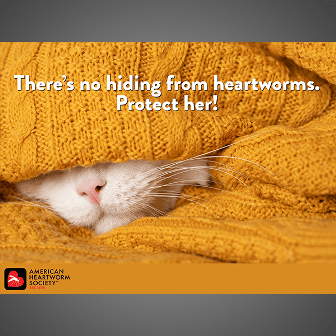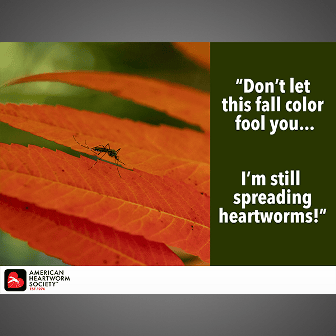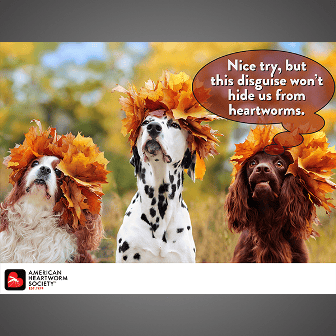As their own gift to America’s cats, the American Heartworm Society is helping owners learn more about this threat through a video entitled “The Seven Deadly Truths About Heartworm Disease.” The “truths” include:
Deadly truth #1: If you think heartworm is a “dog disease,” think again. Just like dogs, cats become infected with heartworms through the bite of an mosquito carrying heartworm larvae.
-
Deadly Truth #2:Heartworm disease is a different disease in cats than dogs. Cats typically get only a couple of worms, while dogs can harbor a hundred worms or more. And just one or two heartworms can kill a cat.
-
Deadly Truth #3:Most heartworms in cats die before they reach adulthood. However, even a passing infection can cause permanent damage, affecting a cat’s health and ability to breathe.
-
Deadly Truth #4: Heartworm disease in cats is common. Once thought to be much less common in cats, some experts now say the incidence of heartworm disease in cats is similar to that in dogs. However, the standard blood tests used in diagnosing heartworm infection can only detect adult worms, not the immature infections that are common in cats.
-
Deadly Truth #5: There is no approved medication for treating heartworm in cats. The medication used to treat heartworm in dogs isn’t safe for use in cats.
-
Deadly Truth #6: Indoor cats need protection from heartworms. A study at North Carolina State University revealed that one in four cases of feline heartworms occur in indoor cats.
-
Deadly Truth #7:Cats need heartworm prevention, but an estimated 95 percent of cats aren’t given preventives on a routine basis. It’s especially important since heartworm disease can only be prevented in cats, not treated. Heartworm preventives are available through veterinarians.
According to Dr. Jones, kittens can be started on heartworm prevention when they reach the age of 8 weeks, and should be kept on prevention for life.








